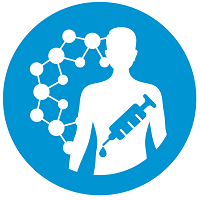Preclinical, Clinical and Translational Sciences
Plasma & Liver Pharmacolipidodynamics of Gefitinib Using LC-MS/MS and MS-Imaging
Monday, October 21, 2024
3:00 PM - 3:15 PM MT
Location: 251 DE

Robert Plumb, PhD
Scientific Advisor
Waters Corporation
Milford, Massachusetts
Rapid Fire Speaker(s)
Understanding off target pharmacology and idiosyncratic toxicity is critical to successful drug development and mitigation of late-stage compound attrition. Gefitinib is an anilinoquinazoline thymidylate kinase inhibitor (TKI), selective for the epidermal growth factor receptor (EGFR) used in the treatment of non-small cell lung cancer [1]. The purpose of this study was to investigate the effect of gefitinib on lipid abundance in the systemic system and liver of male mice. The pattern of the changes in relative lipid abundances appeared to correlate to the pharmacokinetics of gefitinib (and its major metabolites). These observations support the concept of a distinct pharmacolipidodynamic relationship between drug exposure and plasma lipid abundance.
Learning Objectives:
- Understand pharmacolipidodynamics studies. Learn how the administration of Gefitinib changes biomarkers in mice.
- Role of microsampling in DMPK-Omics studies
- Corrolation of biomarkers with drug/metabolite concentrations


